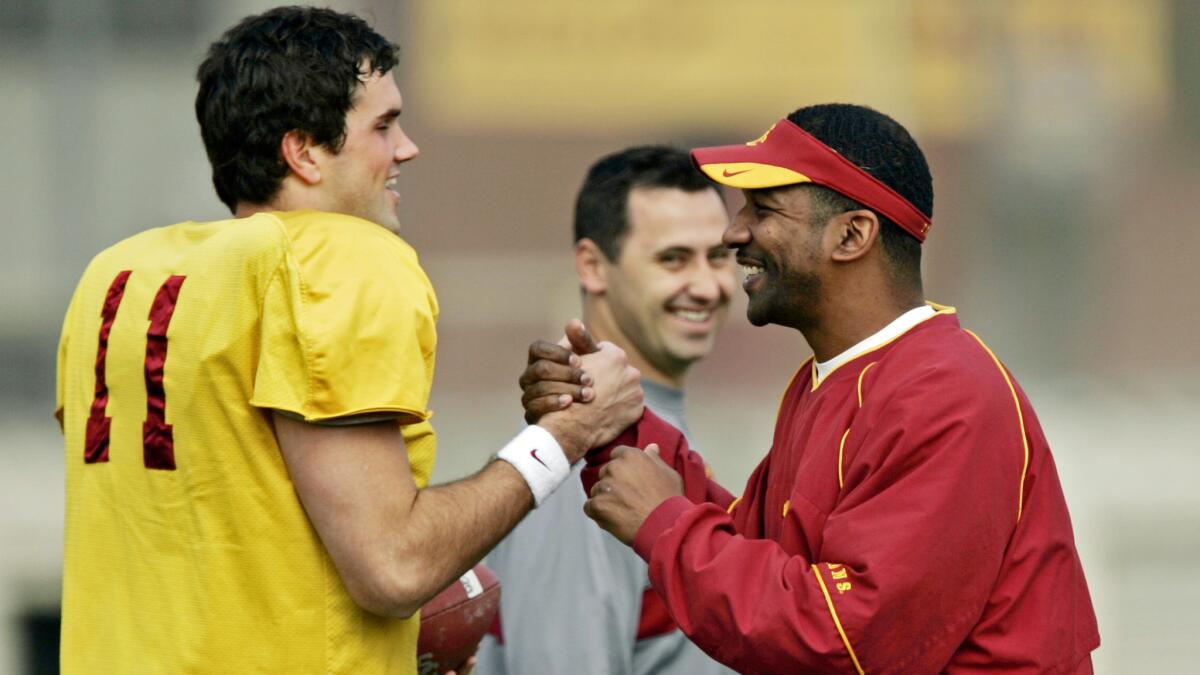NCAA defends handling of Todd McNair case in court filing

- Share via
The NCAA offered a spirited defense of the infractions case against former USC running backs coach Todd McNair in a filing Friday with California’s 2nd District Court of Appeal.
“For all his acerbic finger-pointing and claims of a ‘vendetta’ against him that resulted in ‘malice personified,’ Todd McNair alone is responsible for the show cause penalty imposed on him,” the 41-page brief said.
The filing sought to dispel the notion that the NCAA’s Committee on Infractions needed the findings against McNair in order to levy historic sanctions against USC in the aftermath of the Reggie Bush extra-benefits scandal.
“But even without findings against McNair, USC was charged with and found responsible for other Bush-related infractions,” the brief said. “There was no need to make McNair a ‘sacrificial lamb’ to sanction USC.”
The NCAA wants the appellate court to strike McNair’s complaint and dismiss the long-running defamation lawsuit.
Last month, the full record in the case became public. The records included an inflammatory email from infractions committee liaison Shep Cooper to Rodney Uphoff, a University of Missouri law professor and nonvoting member of the 10-person committee.
“He’s a lying, morally bankrupt criminal, in my view, and a hypocrite of the highest order,” Cooper wrote in February 2010.
That email was among the documents that led Los Angeles Superior Court Judge Frederick Shaller in November 2012 to rule that they “tend to show ill will or hatred” on the part of the NCAA.
The NCAA pushed back against that idea in Friday’s filing, saying that “there was no hostility against McNair” and that committee members who characterized him as a “liar” were only showing “a sincere belief in the findings.”
The infractions committee ruled that McNair engaged in unethical conduct and issued the show-cause order that makes a coach essentially unemployable.
Attorneys for McNair have assailed the NCAA’s handling of the infractions case, including a purported brief phone call between the coach and sports marketer Lloyd Lake in January 2006. The call formed a key element of the NCAA’s case.
“True, a few mistakes were made while interviewing Lake and McNair in the course of a years-long investigation involving dozens of witnesses and thousands of records,” the brief said. “But mistakes do not show malice.”
Oral arguments in the appeal are scheduled for next month.
More to Read
Go beyond the scoreboard
Get the latest on L.A.'s teams in the daily Sports Report newsletter.
You may occasionally receive promotional content from the Los Angeles Times.











